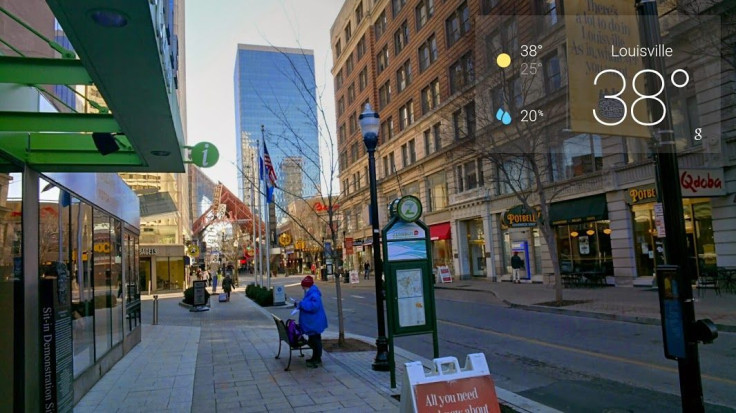Not A Glasshole: Loyalists Keep Wearing Google Glass Even As 'Explorer' Program Ends

Google Glass was touted as the next step in wearable computing, but instead, the $1,500 eyewear came to represent tech inequality, with its users being branded "glassholes" for wearing the devices -- which record video -- into restaurants and bars. After two years, Google ended its "Explorer" beta testing program and sent Glass back to the drawing board.
In the tech echo chamber, Google Glass is dead and buried. But after two years in the real world, Google Glass still has plenty of loyalists who swear by the technology, including Kentucky mobile phone website executive Lucas Freeman. For the 27-year-old senior administrator with Swappa, a website for selling used mobile devices, Glass continues to be part of his daily routine. It’s one of the first things he puts on every morning, and from there he’s off to work from his home office space.
While he’s working, Glass serves mostly as a personal assistant, keeping him up to date with information delivered literally right in front of his eyes. “I get my notifications through Glass, which is extremely helpful,” Freeman said. “And I don’t have to lose my train of thought compared to picking up my phone. Having the notifications by just glancing up makes a world of a difference.”
But once he’s off the clock, Freeman puts his Google Glass through its paces. On the road, it’s his navigator; in the supermarket it provides him with a view of his grocery lists; in the kitchen, he uses it to pull up recipes while he’s cooking. It also doubles as a camera, which he finds most beneficial when he’s out on a trip to Costa Rica or a hike through the wilderness. “Instead of interfering with my vacation, fiddling with the phone or anything like that, Glass lets me look though it instead of looking into it,” he said. “It’s less invasive.”
#handsfree #throughglass #foodie #freshisbest https://t.co/qmAL5ZgiHi pic.twitter.com/HzkXaJfcWy
- Lucas Freeman (@lucasfrm19) January 23, 2015That may be the case for Freeman, but for those without Google Glass, the device’s built-in camera drew privacy concerns while also fueling the stereotype of the Glasshole, a term used by some to describe owners of the wearable. It’s a stigma that even Google had tried to shake off with its own set of suggestions for user etiquette. “In the Explorers program there are definitely Glassholes,” he said. “I’m not going to defend everybody that wears Glass.” Still, despite some negative perceptions towards Google Glass, that was hardly the experience he encountered in the real world. Instead, Freeman said, most people were just curious about the device.
But it was their curiosity towards Glass that sometimes irked his wife, Megan. “For a time I dreaded him wearing it out, because he got stopped so many times,” she said. “He loved to talk about it. But I would get stuck looking to waste time in the mall while he was giving demos to people. And it took away from us on dates.” That was when Glass was still new. Nowadays, it’s less of a problem for her since most people know what it is, she added.
Even with all of his raves about Glass, Freeman has his own criticisms of it. The processor is lacking, the battery is easily eaten up when recording video and the design could use further streamlining, he said. As for the program itself, regular verbal updates on the progress of Glass was poor. But most of all, price is the biggest thing he believes that Google need to fix. At $1,500 a pop, Glass was an expensive experiment that kept the unique eyewear mostly in the hands of enthusiasts and the wealthy, fueling perceptions of social inequality.
The hardware issues are something Google is reportedly working on by replacing Glass’ Texas Instruments OMAP processor with a low power Intel chip in the next model, according to the Wall Street Journal. And as for the future of Glass, iPod creator Tony Fadell has taken the reins of the program, which was formerly spearheaded by Google X, the research arm of the search and advertising firm.
While the Glass Explorer program has formally closed, Google insists that this is not the end for the wearable. The company still supports its enterprise customers through its Glass at Work program and says new versions of Glass are on the way. But for now it has remained quiet on how it plans to move forward with future models.
© Copyright IBTimes 2024. All rights reserved.






















